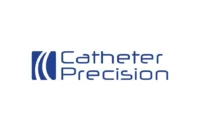Updated to clarify that MDT officers and directors were compensated for excise-tax based liabilities related to stock options, and not for capital gains.
Medtronic (NYSE:MDT) shareholders seeking to sue the company claiming they were harmed by its $50 billion corporate inversion merger with Covidien will get their chance in court, the Minnesota Supreme Court ruled yesterday.
The case had been previously dismissed by lower courts which ruled that shareholders did not have the ability to sue under Minnesota law. Shareholders appealed, and the Minnesota Court of Appeals ruled that shareholders were directly damaged and could proceed last January.
Yesterday, in a unanimous opinion, Minnesota Supreme Court Chief Justice Lorie Gildea upheld the appeals court’s decision that shareholders faced direct injury and that key portions of the case should proceed.
Plaintiffs in the case argue that the inversion-structured merger burdened shareholders with millions in capital-gains taxes, as the US Internal Revenue Service treats such transactions as taxable events, and shareholders received no compensation for said costs.
Medtronic officers and directors who incurred an excise-tax liability on their stock-based compensation, however, were reimbursed by the company for those charges, plaintiffs in the case argued.
Shareholders also argued that their shares, and associated voting rights, were diluted as Medtronic lowered its corporate tax rate and increased the number of shares by issuing millions of new shares to Covidien shareholders.
Medtronic argued that the case “essentially alleged that Medtronic paid too much for Covidien, which the company argued is “quintessentially” a derivative claim that affects all shareholders equally,” according to court documents.
Shareholders argued that because they were directly affected by the transaction, the claims were direct and non-derivative.
Plaintiffs in the suit, which is seeking class-action status, are seeking financial damages, though attorneys in the case have not closed the door on other possible legal remedies.
Responding to the Minn. Supreme Court ruling, Medtronic argued that the decision was purely procedural, according to a Star Tribune report.
“While the court is sending some claims back to the district court for further proceedings, the court did not express any opinion on the merits. Medtronic will now proceed to defend the remaining portion of the case, and believe the substantive claims are without merit,” company spokesperson Fernando Vivanco wrote to the paper.






